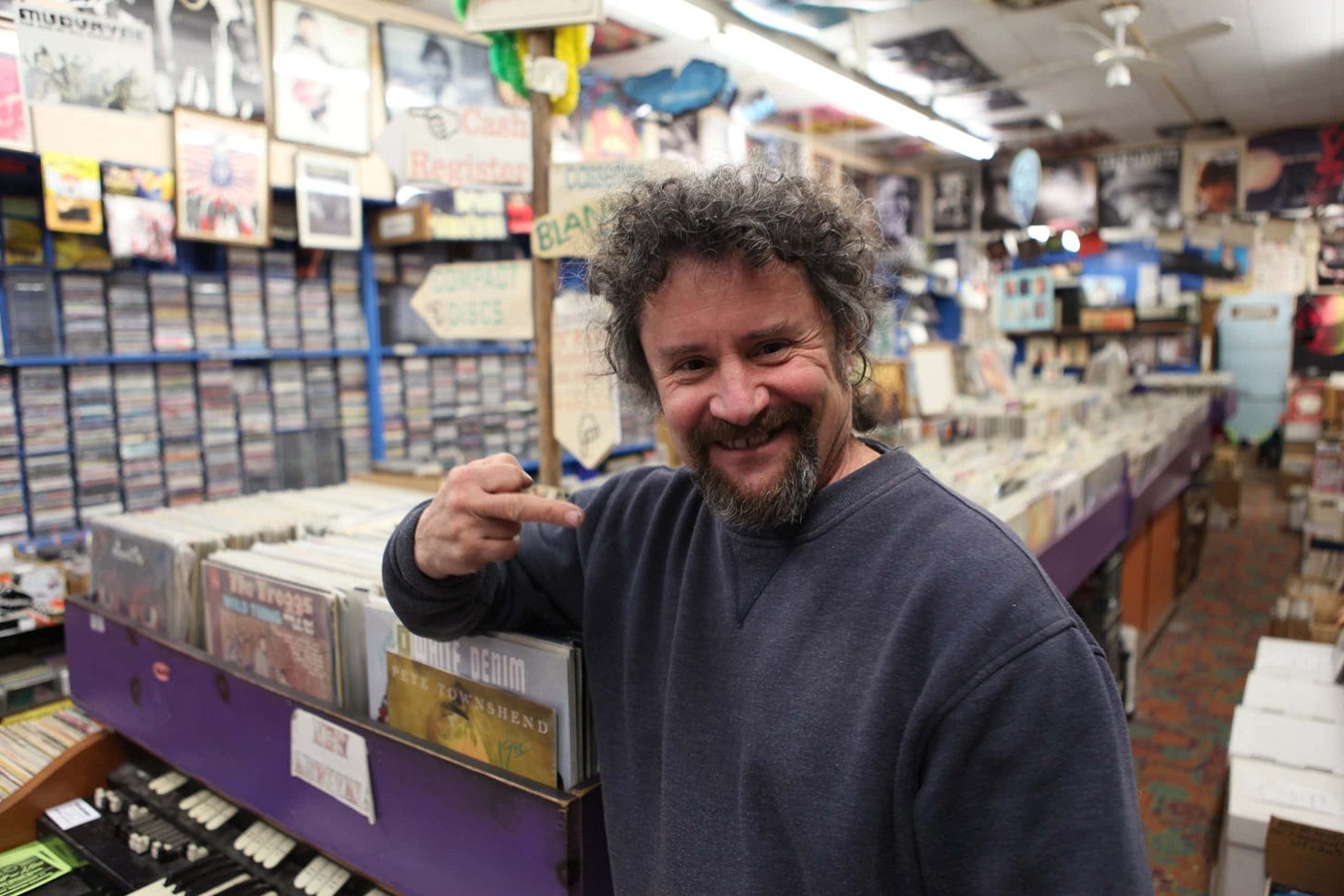When your favorite band T-shirt doesn't fit anymore
'Flipside' attempts to weave Gen X nostalgia into something new
My favorite band is Wilco, and I have a lot of Wilco T-shirts in my closet. Dozens. I buy a shirt every time I see them live, which is at least once a year since 1999. And if you add in all the additional shirts I’ve bought online from the band’s website? That’s a lot of T-shirts.
Let’s be frank – a lot of those shirts don’t fit me anymore. And yet I cannot get rid of any of them. Each one is tied to a specific show, a specific memory. To donate them to Goodwill would be to give away a part of my past, a part I really treasure.
I thought about all those T-shirts a lot while watching “Flipside,” Chris Wilcha’s personal and big-hearted documentary about the things we carry, the things that both define us and haunt us. It’s available now to rent or buy on the usual streaming services (it was $5 to rent on Prime Video).
Nearly a quarter-century ago, Wilcha made his first documentary, “The Target Shoots First.” Wilcha documents his time working in the corporate offices of the Columbia Tape and Record Club, an institution that didn’t realize at the time that it’s days were numbered.
It was one of the first films I wrote about after I started working as a pop culture writer in 1999, and I remember being won over by its cheeky guerilla spirit. Wilcha mocked the corporate world and its ham-handed attempts to relate (and make money off) the alternative music culture of the time. Wilcha might work there, and take a paycheck there, but he wasn’t really part of the establishment, right? You can sell without selling out, right?
This is where a “Spongebob Squarepants”-style title card reading “10 Years Later” would come in handy. In “Flipside,” we see Wilcha went on to a career that would be the envy of many filmmakers. He worked on the underrated TV version of “This American Life,” and made a documentary about the making of “Funny People” for Judd Apatow. And he made commercials. A LOT of commercials. No shame – he made enough money to support his family, and he would always have time on the side for his personal passion projects, right?
Except those passion projects never got finished. His office is littered with hard drives full of footage of unmade documentaries. A movie about writer Starlee Kine’s battle with writer’s block. A movie about an acclaimed jazz photographer looking back on his life. And, most significantly, a documentary about his favorite video record store, Flipside Records & Tapes, which seemed preserved in amber from when Wilcha worked there in the ‘90s.
“Flipside” rather brilliantly pulls together footage from all of these projects, along with Wilcha’s present-day ruminations on them, for a thoughtful film about our pasts, and the cultural artifacts that connect us to them. Those objects – whether old albums or old hard drives of abandoned projects – define who Wilcha is. But they also weigh him down, remind him of things he hasn’t done, or things that have gone forever.
“Flipside” is his attempt to weave those old things together into something new, something that’s meaningful to Wilcha in the here and now. As such, it ends up being a very optimistic and even joyful film, especially for middle-aged viewers who find themselves looking backwards more than they should.
As for those old Wilco shirts? My wife says she wants to stitch them together and make a quilt. I can’t think of a better way of honoring what they mean to me while lightening the load.



